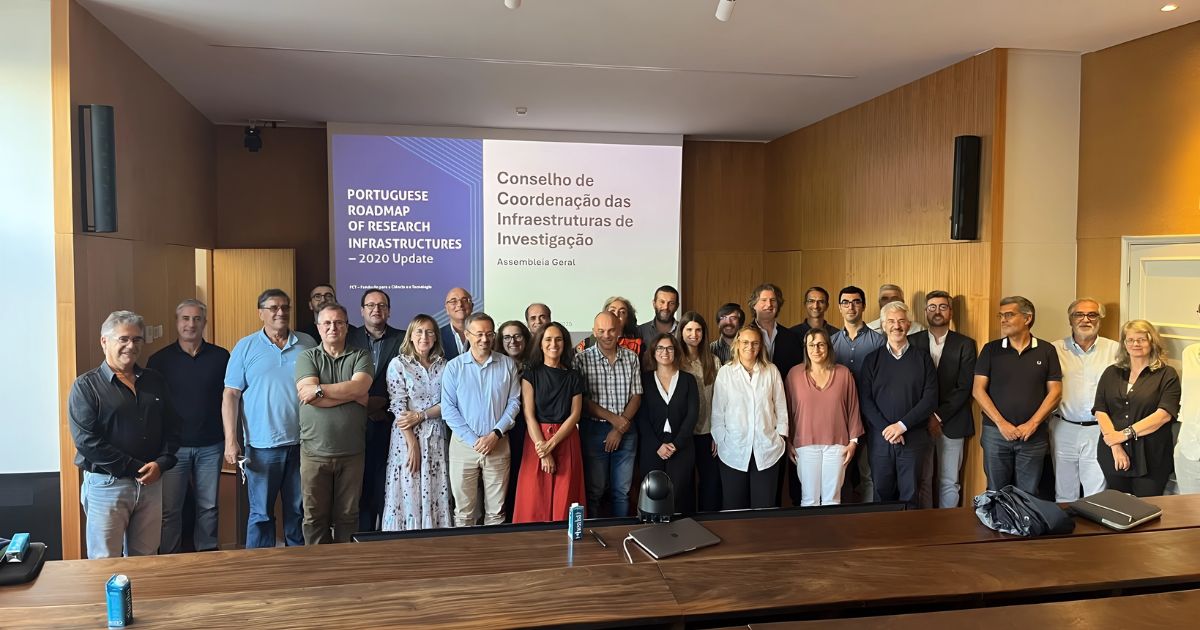CoastNet joins new Coordinating Council for Research Infrastructures in Portugal
The CoastNet infrastructure – Portuguese Coastal Monitoring Network, coordinated by MARE/ARNET, is a founding member of the newly created Coordinating Council for the National Roadmap for Research Infrastructures (CC-RNIE), which includes 56 strategic scientific infrastructures recognised by the Foundation for Science and Technology (FCT). 
The new body, chaired by Luísa Cortes from the Centre for Neuroscience and Cell Biology at the University of Coimbra / Centre for Innovation in Biomedicine and Biotechnology (CNC-UC/CiBB), aims to strengthen dialogue with the Government and promote a strategic and coordinated national vision for the development of research infrastructure in Portugal.
Inspired by models such as the Council of Associated Laboratories and the Forum of Collaborative Laboratories, the CC-RNIE emerges as a structure for joint coordination and representation, with the aim of consolidating the role of the National Infrastructure Roadmap in the scientific and innovation system.
Among its priorities are the creation of a multi-annual and predictable funding model, ensuring greater stability and efficiency, and strengthening coordination between scientific areas and institutions in order to increase international competitiveness.
The lack of coordinated and stable funding has been one of the main limitations pointed out by infrastructures, compromising the updating of equipment and leading to the loss of specialised human resources. The new Council aims to respond to these challenges and strengthen the capacity for joint representation with the authorities and public decision-makers.
The constituent General Assembly took place on 3 October at the University of Coimbra, formalising the regulations and the Installation Committee, which will remain in office until March 2026.
According to José Lino Costa, MARE researcher and CoastNet coordinator, "the creation of the Coordinating Council for the National Roadmap for Research Infrastructures is a milestone in the organisation of the ecosystem of national research structures, as it will serve as a privileged forum for discussing the mission and evolution of Portuguese infrastructures in the national and international context and will play a fundamental role in liaising with the supervisory body and other stakeholders in the scientific community and society in general.”
The researcher also points out that CoastNet, ‘having been part of the informal group of research structures that gave rise to the creation of this body from the outset, will continue to participate actively in it, in order to ensure the pursuit of its objectives and increase its visibility, with a view to maintaining and developing the various infrastructures and deepening their scientific and societal relevance.’
CoastNet thus joins a structure that aims to strengthen cooperation between scientific networks and promote the appreciation of science and technology within society.
Read the full news article HERE
Text by Vera Sequeira
